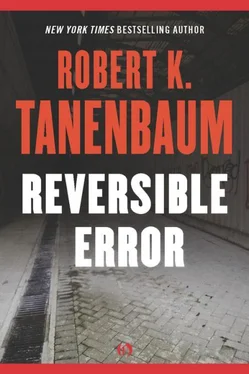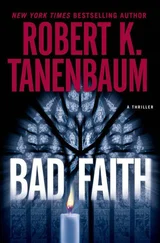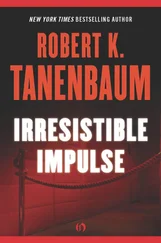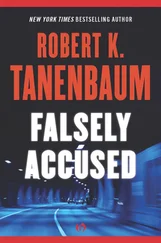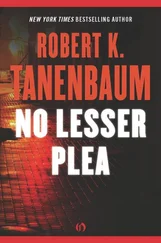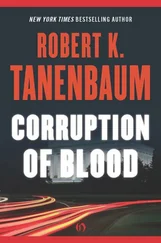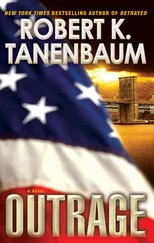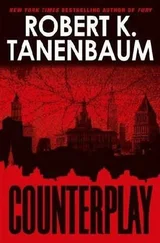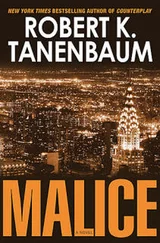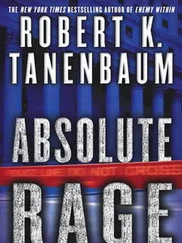Robert Tanenbaum - Reversible Error
Здесь есть возможность читать онлайн «Robert Tanenbaum - Reversible Error» весь текст электронной книги совершенно бесплатно (целиком полную версию без сокращений). В некоторых случаях можно слушать аудио, скачать через торрент в формате fb2 и присутствует краткое содержание. Жанр: Криминальный детектив, на английском языке. Описание произведения, (предисловие) а так же отзывы посетителей доступны на портале библиотеки ЛибКат.
- Название:Reversible Error
- Автор:
- Жанр:
- Год:неизвестен
- ISBN:нет данных
- Рейтинг книги:5 / 5. Голосов: 1
-
Избранное:Добавить в избранное
- Отзывы:
-
Ваша оценка:
- 100
- 1
- 2
- 3
- 4
- 5
Reversible Error: краткое содержание, описание и аннотация
Предлагаем к чтению аннотацию, описание, краткое содержание или предисловие (зависит от того, что написал сам автор книги «Reversible Error»). Если вы не нашли необходимую информацию о книге — напишите в комментариях, мы постараемся отыскать её.
Reversible Error — читать онлайн бесплатно полную книгу (весь текст) целиком
Ниже представлен текст книги, разбитый по страницам. Система сохранения места последней прочитанной страницы, позволяет с удобством читать онлайн бесплатно книгу «Reversible Error», без необходимости каждый раз заново искать на чём Вы остановились. Поставьте закладку, и сможете в любой момент перейти на страницу, на которой закончили чтение.
Интервал:
Закладка:
A wedding portrait from the thirties: a tall man, looking determined and confident, bearing Karp's wide cheekbones, and a beautiful woman with Karp's gray eyes, eyes that were not at all confident, in a beautiful, gentle, and introspective face. The dead mother and the estranged father. The thought exploded into her mind that all this was now growing within her body. It rocked her like the surf and she grew momentarily dizzy.
Her vision cleared, and she reached for another frame. Three boys, aged about eight, ten, and twelve, the youngest her own lover. The other two were showing the false smiles encouraged by commercial photographers; little Butch, in contrast, was holding out, just the ghost of a secret smile on his lips and his little chin defiantly raised. Unaccountable tears stung her eyes.
She dabbed at them and went on. A portrait of a continental-looking man with a pearl tie pin and an Adolphe Menjou mustache. Husband? Brother?
In a black ebony frame, a small sepia photo taken before the turn of the century, a large family in front of a farmhouse in summer, the men hatted and heavily bearded, the women in long white dresses, the boys in sidelocks, the little girls in pinafores. The Old Country. Marlene's grandmother had stacks of pictures like this one, from another Old Country. For the first time since she had begun with Karp, it came home to Marlene that the difference might be important.
The rest of the photographs showed a younger Sophie with other people, dressed elegantly in the fashions of the twenties and thirties, usually at cafe tables covered with food and bottles, and in the street, in trios and couples, clutching one another and laughing at the camera. The streets were in Europe somewhere-ah, it was Paris-the signs in French, a typical Metro entrance in one background.
Marlene smiled and inspected one of these photographs more closely. In this, Sophie was holding the arm of a sharp-faced woman with large intelligent eyes. With a start, Marlene recognized Colette.
Thus was Marlene's curiosity unbearably piqued, and after the excellent dinner, during which two bottles of an unearthly Montrachet followed the supreme de volaille down the hatch, oiling the tongues of the two ladies, while reducing Karp to grinning stupefaction, she brought up the subject of Sophie's speckled past.
"Colette, yeh," laughed Sophie. "Another size five. Yeh, yeh, of course, dolling, I knew them all. We was in New York, from Poland, me and my sister may she rest in peace, five years sewing, and I run off with a dencer. A bum, but from gorgeous, quel beau, you never saw. Then after-who knows?-a year, he ran off with a putain, who knows where?
"So, nu, I wake up, I'm in Paris, with no money, what I'm gonna do? Thank God, I could use a needle. I worked for Worth, for Mainbocher. Also, later, I had my own place on Rue Champollion.
"They all came to me, the actresses, the girlfriends, the writers. Why not? I was good and I was cheap. Ma petite juive, they used to say."
She giggled. "You know what I done? I had a friend, fancy-schmancy, tres beau mondaine, versteh's? A very fine lady. We used to go to the salons for the shows. I was the servant, the little mouse in the back. I would see the dresses. Then I would run back and buy material and take it to the shop and make the dresses. For my friend and her friends."
"You made them? From memory?"
"Of course, from memory-what you think? Every stitch, better than Dior and half the price. You couldn't tell the difference. That's how I met Max. Max, my husband, he should rest in peace. He had businesses in New York. When he found out what I did, he said, 'Sophie, this is millions here, what you can do. Make the dresses, cut patterns, I'll send them to New York, I got there people can make thousands with machines.'
"So I did, and he was right, we got rich. Cousu d'or! Every year, I would go back and forth, back and forth, boats, airplanes. All first-class. In Paris, at the George V all the time. And we got married. He said, why not mix business with pleasure? A mensch, aimable! That was Max. You would've loved him. Roger, you remember Uncle Max?"
Karp stirred, mumbled something, and resumed his grinning stupor.
"Our first season, he gave me this." Aunt Sophie stretched her arm across the table to show Marlene a bracelet on her wrist. It was a thick wide band of gold in the art-nouveau style, decorated with a line of jaguars running through a jungle. The jaguars' eyes were diamonds and the jungle was constructed of close-packed emeralds. Marlene examined the bracelet. "It's incredible," she exclaimed and then froze briefly. Just above the bracelet on the thin wrist was a line of blurred blue numbers: 75955. Below these, a tiny solid heart had been tattooed in red.
Aunt Sophie caught the change in expression. "Yeh, that. He begged me, he said, 'Sophie, don't go this year, I got a bad feeling. But me, what did I know from this? I forgot I was Jewish already. I went for the spring show in 1940, and bang, comes the Nazis. I'm caught. Two years I'm hiding. I'm sewing, I'm starving. Then I get picked up-don't ask! Un tour de cochon! I was in the camps two years, four months, thirteen days. I don't know the minutes. Also sewing, for the Nazis, they want nice clothes for the girls too.
"So. I got on my wrist a souvenir. I come back on the boat, Max is there. 'In my heart I knew you would come back,' he says to me. He wants me to get rid of this, but I say, no, we should never forget. But I put in this heart myself, to cover up, you know, the swastika.
"Roger, here, he was always interested, so interested. His mother, she should rest in peace, would say, 'Leave Aunt Sophie alone, she don't want to remember these times,' but he would ask. One time, cute! You could die from it. He brought out a little wet rag and soap. I'll clean it off, Aunt Sophie.' So he was scrubbing, scrubbing, and the more he was scrubbing, the more it wouldn't come off, and he was crying and scrubbing. You remember that, Roger?"
Marlene saw that Karp was now alert, not smiling, grave. "Yes, I do," he said.
Sophie went on. "He would ask me, how come they put the little mark across the seven like they make, and I would tell him, they're very careful, the Nazis, they don't want to mix it up with a number one, God forbid they should kill the same person twice." She laughed and shook her head.
"So, dolling… quel mignon! You was going to grow up and get those Nazis for your old Aunt Sophie. So tell me, Roger, what do you hear from Daniel and Richard? I never hear from them."
Karp and his great-aunt began speaking of family, reminiscences mixed with news of births, deaths, college graduations, professional success or failure, speculation about missing persons, the occasional maledictions on the clan's bums. Marlene sucked on the remains of the wine and listened to the hearthfire legends of the paternal Karps and the maternal Gimmels. It had not sunk in on her until this moment that Karp sprang from the same sort of limitless immigrant circus from which she herself had sprung, with its stars, its clowns, its humble shovelers-up after elephants.
That Karp had depths, she knew; she had never glimpsed before this evening the creatures that inhabited them, and was by turns fascinated and frightened, as she had been when studying the pictures on the piano.
Karp seemed so isolated as a man, so himself, a creature sui generis, that Marlene had let herself imagine that Karp's origins meant as little to him as they did to her: an interesting fact, an exotic spice; occasionally, as with the wedding preparations, a mild pain in the ass. She saw Karp as a perfectly melted New Yorker, as she was. Now it began to dawn on her that there might be a chunk of some more refractory metal buried in the melt, something ancient and hard as diamond.
Читать дальшеИнтервал:
Закладка:
Похожие книги на «Reversible Error»
Представляем Вашему вниманию похожие книги на «Reversible Error» списком для выбора. Мы отобрали схожую по названию и смыслу литературу в надежде предоставить читателям больше вариантов отыскать новые, интересные, ещё непрочитанные произведения.
Обсуждение, отзывы о книге «Reversible Error» и просто собственные мнения читателей. Оставьте ваши комментарии, напишите, что Вы думаете о произведении, его смысле или главных героях. Укажите что конкретно понравилось, а что нет, и почему Вы так считаете.
